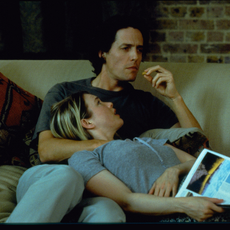This is how the blue light in your smart phone is ruining your skin
Another reason to put the phone down


Another reason to put the phone down
We all know that technology probably is ruining our social lives (IRL, that is) and that it's almost certainly giving us FOMO and slight anxiety but have you ever wondered what it's actually doing to your skin, too?
Let's find out, shall we?
Does bacteria on your phone screen affect you?
Dr Preema Vig says, 'Unless you regularly wipe your phone with an antibacterial wipe, studies have found that mobile phones are contaminated with bacteria - more than a toilet. These can be the cause of skin breakouts and blemishes!'
'They can be covered with a combination of sweat, make-up, substances from your hands and germs from where you have placed your phone and these transfer to your skin each time you answer a call.'
Is blue light bad for you?
Mrs Sabrina Shah Desai of Perfect Eyes Ltd says, 'There are studies that show that blue light may give off infrared radiation and could have harmful effects on the skin such as premature ageing, caused by cell-damaging free radicals. Therefore, it is important to protect the skin.'
'Ensure your daily regime includes a good topical antioxidant such as a vitamin C serum and a sunscreen. Make-up also helps to create a barrier between our skin and the blue light/ infrared emitted by devices that form a significant part of our daily life from phones, iPads, laptops and screens.'
Marie Claire Newsletter
Celebrity news, beauty, fashion advice, and fascinating features, delivered straight to your inbox!

Mr Sheraz Daya, the Medical Director of the Centre for Sight, says, 'Blue light is very important in regulating circadian rhythm (the body's natural wakefulness and sleep cycle), as exposure to blue light during daytime hours helps maintain a healthful circadian rhythm. However, too much blue light late at night (reading a novel on a tablet computer or e-reader at bedtime, for example) can disrupt this cycle, potentially causing sleepless nights and daytime fatigue.'
'In addition, blue light, which is part of the visible light spectrum, reaches deeper into the eye and its cumulative effect can cause damage to the retina. Furthermore, in certain wavelengths, blue light is implicated in the development of age-related macular degeneration (AMD). Although more research is needed to determine how much natural and man-made blue light is "too much blue light" for the retina, many eye care providers are concerned that the added blue light exposure from computer screens, smartphones and other digital devices might increase a person's risk of macular degeneration later in life.'
'Because short-wavelength, high energy blue light scatters more easily than other visible light, it is not as easily focused. When you're looking at computer screens and other digital devices that emit significant amounts of blue light, this unfocused visual "noise" reduces contrast and can contribute to digital eye strain.'


